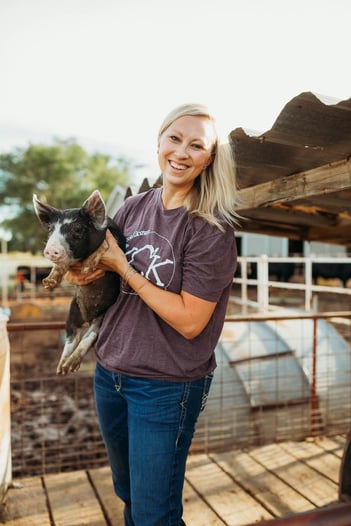The Recreation Market - How it Has Changed and is Evolving
 About the author: John Hansen is a Nebraska Landowner bringing his ideas and perspective to the forefront of our mission; to partner with landowners who value adaptive management and are seeking alternative sources of revenue. With an education in Animal and Range Sciences from Montana State University, several years managing small to medium sized ranches, and 26 years with Ted Turner managing some of the largest land holdings in the U.S., John brings a depth of knowledge and experience to LandTrust and its landowner partners. His strong background in agriculture and natural resource management provides a unique opportunity to share what he has learned through this extensive experience base with landowners to help them achieve a more profitable Land Business.
About the author: John Hansen is a Nebraska Landowner bringing his ideas and perspective to the forefront of our mission; to partner with landowners who value adaptive management and are seeking alternative sources of revenue. With an education in Animal and Range Sciences from Montana State University, several years managing small to medium sized ranches, and 26 years with Ted Turner managing some of the largest land holdings in the U.S., John brings a depth of knowledge and experience to LandTrust and its landowner partners. His strong background in agriculture and natural resource management provides a unique opportunity to share what he has learned through this extensive experience base with landowners to help them achieve a more profitable Land Business.
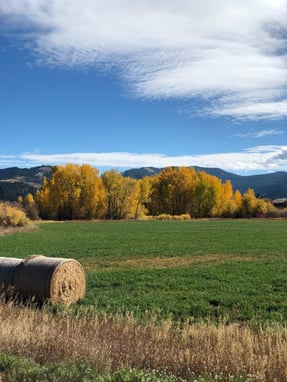 In my previous LandTrust Blog, Land Ownership - View It as a Business, I encouraged landowners to view their land as a business and to begin to analyze their asset for the various attributes, products, and values that can be monetized to contribute to the land revenue. If you have worked on that process, you have probably come up with the standard consumptive/extractive type products such as: livestock production, crop production, timber production, and mineral extraction (mining, oil, coal, etc.). You may have also listed “experience based” products such as: hunting, fishing, bird watching, nature/ecology tours, camping, hiking, agricultural experience visits, agricultural educational tours, and rural wedding packages. The “additive/ecosystem services” products you have identified may be: carbon sequestration, water retention, soil retention, wildlife habitat improvements, or pollinator habitat enhancements.
In my previous LandTrust Blog, Land Ownership - View It as a Business, I encouraged landowners to view their land as a business and to begin to analyze their asset for the various attributes, products, and values that can be monetized to contribute to the land revenue. If you have worked on that process, you have probably come up with the standard consumptive/extractive type products such as: livestock production, crop production, timber production, and mineral extraction (mining, oil, coal, etc.). You may have also listed “experience based” products such as: hunting, fishing, bird watching, nature/ecology tours, camping, hiking, agricultural experience visits, agricultural educational tours, and rural wedding packages. The “additive/ecosystem services” products you have identified may be: carbon sequestration, water retention, soil retention, wildlife habitat improvements, or pollinator habitat enhancements.
At this time, we will save the “consumptive/extractive” and “additive/ecosystem services” categories for other Blogs. For now, let’s focus on the “experience based” or recreational products.
As a landowner, your portfolio of income streams may be somewhat diverse. However, most common sources of income are extractive and/or consumptive. As a non-consumptive/extractive product, experience-based recreational products can be a valuable addition to every landowner's mix. Recreational products allow for a range of creativity and imagination, which leads to the greatest range of marketing possibilities and opportunity for significant revenue. So, if there is great potential in these products, why isn’t the market well developed and mature?
The growth in population and increase in relative “leisure time” over the last fifty years has significantly contributed to a desire, and hence, a demand for outdoor recreational activity. This has placed more of a demand on public lands and resources by recreationalists over the last several decades. Consequently, attention on the recreation assets contained on private lands began to get noticed to a greater degree.
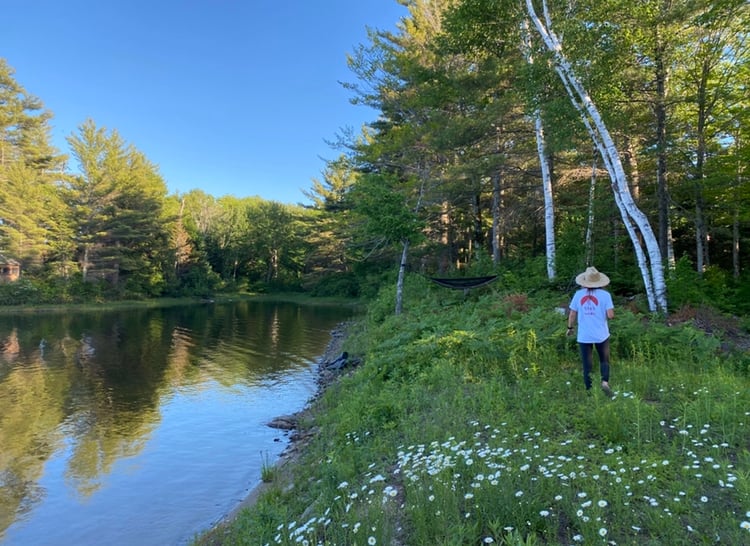
To illustrate this, I will relate my own experience in Northeastern Montana. In the early 1970’s, when I was first beginning to hunt, landowners were generally very happy to let you on their property to hunt, trap, and fish. I only knew of a couple of ranches that charged for some of their hunting and that was usually only a couple of weeks of booked trophy hunts for deer. The rest of the season they usually allowed locals to come hunt at no charge. At the same time, the public lands (and there are a lot of them in Northeast MT) had a very low density of hunters. When I was hunting, it was rare to see more than one or two other hunters in a day.
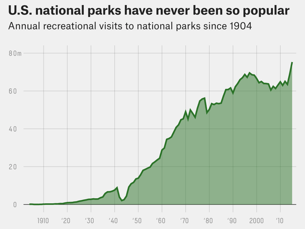 Fifty years later, the population has increased, the West has been discovered, the amount of time for recreation has increased, and the ability to travel to recreate has increased. Now, much of the private land is under hunting leases, outfitted hunting, or no access for anything. The public land has a much greater density of hunters and other recreationalists– just look at visitation data for the national parks and you get a clear idea of what has happened.
Fifty years later, the population has increased, the West has been discovered, the amount of time for recreation has increased, and the ability to travel to recreate has increased. Now, much of the private land is under hunting leases, outfitted hunting, or no access for anything. The public land has a much greater density of hunters and other recreationalists– just look at visitation data for the national parks and you get a clear idea of what has happened.
All of these factors have set up the marketplace for private lands recreation demand. Hunting, and to some degree fishing, have had relatively good success in being marketed on private lands. This has mostly been due to the marketing efforts of outfitters that have leased several large private land areas. They are able to take advantage of the economy of scale provided by a large amount of opportunity. The average agricultural property generally doesn’t have enough hunting or fishing opportunities to justify the marketing, hosting, or guiding efforts just for their operations. This is why much of the private land hunting has been leased to outfitters or hunting clubs. Other recreational opportunities on private land have not had as widespread a fortune of being developed and promoted. However, I believe that is changing for a couple of reasons.
- Internet marketing has hit its stride. People have become more used to shopping, researching, and booking/buying online. The generation that grew up with the internet have hit the stage of career maturity and affluence that makes them serious consumers on the internet venue. Older generations have gained more confidence with this mode of doing business and are now retiring with more time and financial resources to take advantage of recreational opportunities that may be offered via websites.
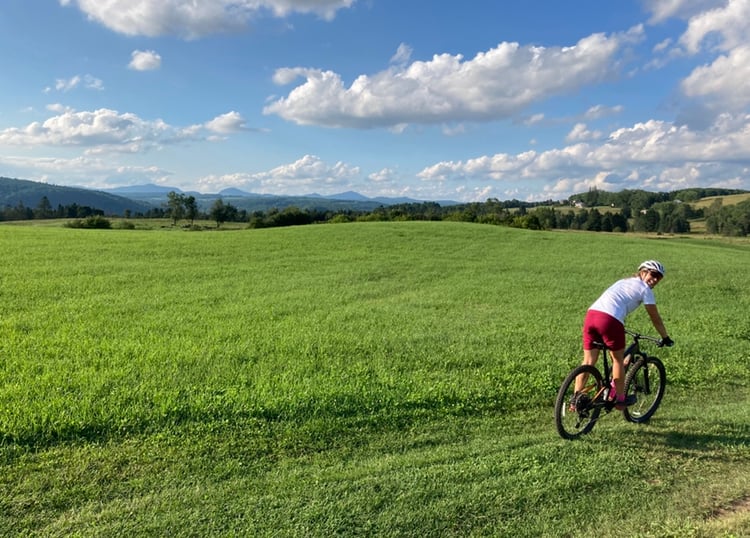
- The “Pandemic” which started in 2020 has had a major impact on how people are currently recreating. Traveling outside of the US became problematic. High crowd density recreational venues were cancelled, not offered, or banned. People began to rethink how they were going to spend leisure time. Quality of experiences became more important as the quantity of experiences was reduced. Additionally, many people started trying to connect to their food sources as they learned to cook (rather than eat out) and garden - as an activity they could do at home and involve family. Recreational opportunities that provide seclusion, are family friendly, and rural in nature, are being noticed and pursued.
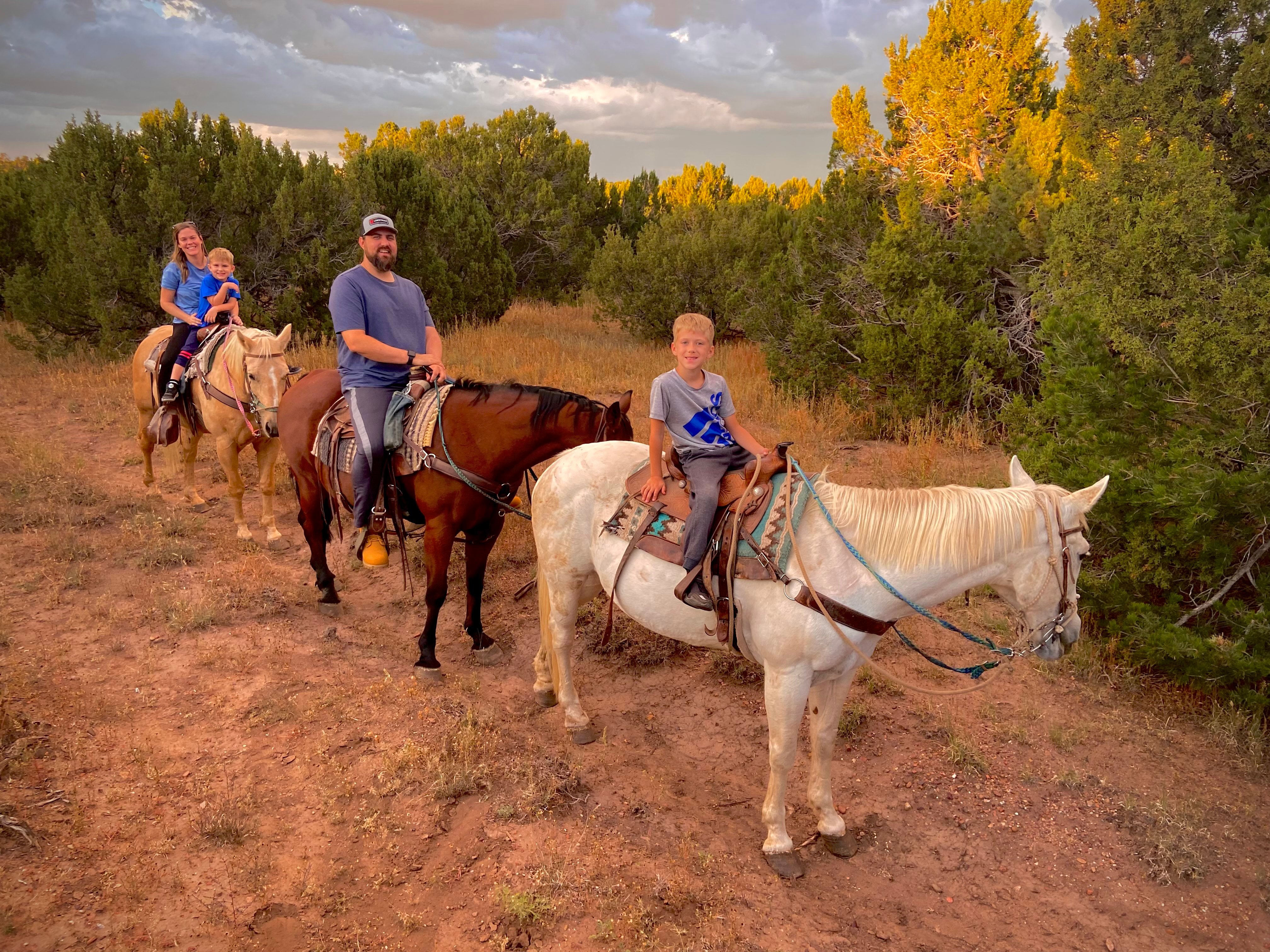
These two factors have increased demand for outdoor and agriculturally based recreation and experiences. This has presented a very favorable opportunity for landowners to create new enterprises for their land business. In addition to diversifying revenue, there is opportunity to educate the public on land-based topics such as agricultural production, wildlife habitat management, and various aspects of ecology. This is not only good for agriculture, but can help drive interest in guests returning and/or recommending your operation to others that are seeking a unique and interesting experience.
LandTrust listing, KCK Farms, exists to bridge the gap between producers and consumers, to bring consumers closer to knowing where food comes from. Learn more about the Kansas listing!
However, the ability to market the experience/recreational opportunities on your property can be very daunting if you have to develop a website and manage that website–all while managing the non-recreational aspects of your land business. LandTrust is a business partner that allows you to take advantage of this growing recreation market, will allow you to have a better economy of scale by pooling you with other providers, provide for greater market recognition, and provide the technological expertise to help make you successful.
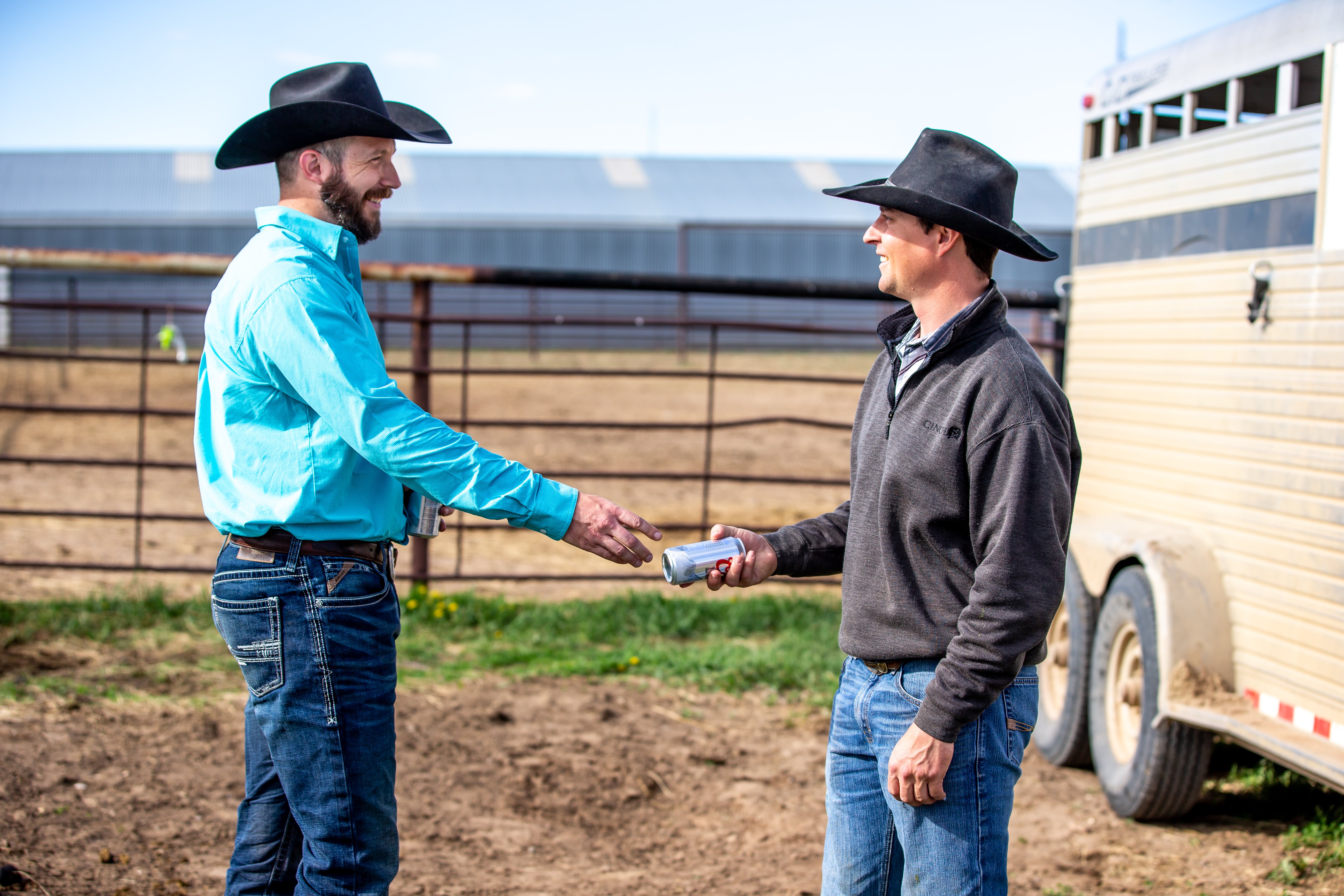 LandTrust employee, Mike Ryan, working hands on with landowner Ches Meyer at the Meyer Ranch.
LandTrust employee, Mike Ryan, working hands on with landowner Ches Meyer at the Meyer Ranch.
Trusted services
LandTrust helps make sharing easy, enjoyable, and safe. We verify personal profiles and listings, maintain a smart messaging system so Landowners and Recreators can communicate with certainty, and manage a trusted platform to collect and transfer payments.

